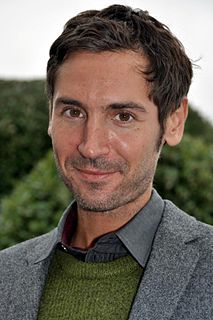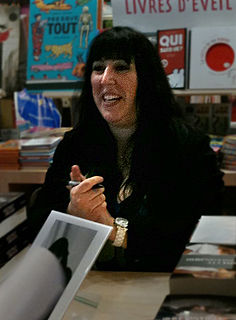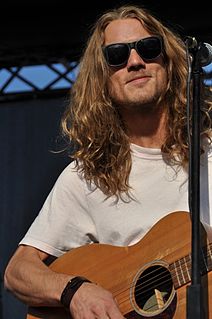A Quote by Jim Harrison
I've got a poem that's in a lot of international anthologies called 'After the Anonymous Swedish' and I thought, 'Well, I'm a Swede. I can make up a Swedish poem.' It turned out pretty good.
Related Quotes
I was working for a Swedish TV show - I'm Swedish - who basically did kind of spectacular stories. It was almost like CBS '60 Minutes,' but a Swedish version where we actually did travel quite a lot. After a while, I realized that travel is the most fun part of this, so why not do it for a longer time and just go off and explore?
When they called me with the Nobel call from Secretary General of the Swedish Academy it was twenty minutes to six and he said well that was well hope I'm not disturbing you but I am the Secretary General of the Swedish Academy. Of course you can imagine I was frozen in time when he said that but then he made a very famous statement, something to the effect that this is the last 20 minutes of peace of your life.
After my grandfather died I went down to the basement of my family house where my family kept books, anthologies and things and there was an anthology without any names attached to it and I read a poem called Spellbound and I somehow attached it to my grandfather's death and I thought my grandfather had written it.
One day while studying a Yeats poem I decided to write poetry the rest of my life. I recognized that a single short poem has room for history, music, psychology, religious thought, mood, occult speculation, character, and events of one's own life. I still feel surprised that such various substances can find shelter and nourishment in a poem. A poem in fact may be a sort of nourishing liquid, such as one uses to keep an amoeba alive. If prepared right, a poem can keep an image or a thought or insights on history or the psyche alive for years, as well as our desires and airy impulses.
The subject of the poem usually dictates the rhythm or the rhyme and its form. Sometimes, when you finish the poem and you think the poem is finished, the poem says, "You're not finished with me yet," and you have to go back and revise, and you may have another poem altogether. It has its own life to live.
Introduction To Poetry I ask them to take a poem and hold it up to the light like a color slide or press an ear against its hive. I say drop a mouse into a poem and watch him probe his way out, or walk inside the poem's room and feel the walls for a light switch. I want them to waterski across the surface of a poem waving at the author's name on the shore. But all they want to do is tie the poem to a chair with rope and torture a confession out of it. They begin beating it with a hose to find out what it really means.





































